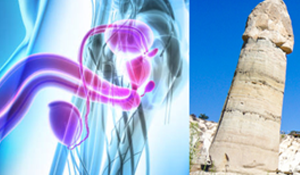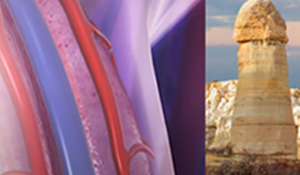16. Diet
Diet is an important part of maintaining healthy erectile function in men and it can be used as a tool to help reduce the risk of erectile dysfunction. Studies have shown that a Mediterranean-style diet is associated with a lower risk of erectile dysfunction. The Mediterranean diet focuses on eating plenty of fruits and vegetables and avoiding red meat.
LEARN MORE NOW
 Mind-Blowing Hardening Secret Cured My ED And Changed My Life. SEE IT
Mind-Blowing Hardening Secret Cured My ED And Changed My Life. SEE IT
 93% Of Men Reversed ED With This 100% Natural Remedy. Big Pharma Absolutely Hates This. SEE IT
93% Of Men Reversed ED With This 100% Natural Remedy. Big Pharma Absolutely Hates This. SEE IT
 Discover The True Cause Of ED And Its Remedy: Not What You Think It Is. SEE IT
Discover The True Cause Of ED And Its Remedy: Not What You Think It Is. SEE IT
Eating lots of whole grains can also lower the risk of erectile dysfunction. Whole grains are also associated with a decreased risk of diabetes, cardiovascular disease, and cancer. They are also a good source of fiber, vitamins, and minerals.
15. Exercise
Exercise should not be too strenuous. Start slow and choose activities you enjoy. Focus on having fun, rather than worrying about the effects of erectile dysfunction. For example, a man suffering from erectile dysfunction may find it beneficial to perform Kegel exercises.
Cardiovascular exercise is another great way to reduce the risk of erectile dysfunction. In one study, men who engaged in 90 minutes of aerobic training each week were less likely to suffer from erectile dysfunction than those who did not exercise.
14. Weight Loss
Obesity hurts testosterone levels, which are necessary for healthy erections and sex drive. In particular, abdominal fat has a great impact on testosterone levels. Weight loss can also prevent other health conditions such as cardiovascular problems, which can cause erectile dysfunction.
Weight loss can also help men feel better about themselves. They can become more confident, which can help them perform better.
13. Sleep
Sleeping enough hours per night may help bring testosterone levels back to normal, which in turn may help with erectile dysfunction. Treating sleep apnea, a condition that disrupts the natural sleep cycle, can also help.
A doctor can evaluate the condition and recommend a sleep treatment plan based on the findings.
12. Psychotherapy
Psychotherapy can treat erectile dysfunction and improve intimacy with your partner. It can also be used to address anxious feelings, which can make erectile dysfunction worse.
The first step in erectile dysfunction therapy is to determine the cause. This may be related to stress, anxiety, or even a relationship that has been strained in the past. A therapist can address these issues and suggest a treatment plan that addresses them.
11. Oral Medications
Oral medications such as sildenafil, vardenafil, avanafil, and tadalafil have revolutionized the treatment of ED, providing an effective and convenient solution for many men.
Vardenafil, sildenafil, avanafil, and tadalafil belong to a class of drugs known as phosphodiesterase type 5 (PDE5) inhibitors.
These drugs work by blocking the enzyme PDE5, which regulates the flow of blood to the penis. By inhibiting PDE5, these medications increase blood flow to the penis, allowing for an erection to occur when sexual stimulation is present.
The efficacy of Viagra, also known as sildenafil, has been demonstrated in numerous clinical trials. In a study published in the Journal of Sexual Medicine, sildenafil was shown to significantly improve the ability to achieve and maintain an erection compared to placebo.
Additionally, a review of 14 randomized controlled trials found that sildenafil was significantly more effective than placebo in improving erectile function.
10. Sex Therapy
Sex therapy is an option for couples suffering from erectile dysfunction. Studies have shown that couples who have good communication tend to have fewer problems with this particular condition.
This may be because erectile dysfunction may be linked to psychological issues. In some cases, psychotherapy can help to alleviate anxiety, which can exacerbate the problem. Moreover, psychotherapy can improve intimacy with a partner.
9. Stress Management
Stress is one of the most common causes of erectile dysfunction. It can raise blood pressure. When that happens, the blood vessel lining can get damaged. Damaged blood vessel linking can harden the arteries. They become narrow, which will obstruct the blood flow to the penis.
Managing stress can prevent high blood pressure, leading to more pleasurable sexual experiences.
8. Limiting Alcohol Intake
Limiting alcohol intake is a great way to improve erections. Alcohol consumption causes dehydration, which can worsen the condition. Additionally, alcohol reduces total blood volume, which is crucial for achieving and maintaining an erection.
It’s best to limit alcohol intake to protect the different parts of the body, from the heart to the nerves.
7. Abstinence From Smoking
Smoking is one of the biggest factors behind erectile dysfunction. It damages the blood vessels and obstructs regular blood flow. Cigarette smoke contains chemicals that damage these blood vessels and may increase the severity of erectile dysfunction.
Quitting smoking is not easy, but the benefits can be significant. Smoking is an addictive substance, and the faster the patient quits, the sooner he’ll see an improvement in sexual performance.
6. Medications
There are several medications available that can help men regain an erection and maintain it. Oral medications such as vardenafil, sildenafil, avanafil, and tadalafil can help treat the condition.
Some medications work by increasing nitric oxide levels in the body. This increases blood flow to the penis, which helps men achieve an erection in response to sexual stimulation.
5. Hormone Therapy
Hormones are responsible for a number of sexual symptoms, including loss of sex drive and lack of energy. Hormone therapy for erectile dysfunction involves increasing the levels of testosterone in the body. These levels are often decreased as men age or develop other health problems.
By balancing testosterone levels, patients can resolve their erectile dysfunction problems. The result is an improved sex drive and improved erections.
4. Penile Injections
Erectile dysfunction can be treated with a penile injection that can help increase blood flow to the penis, resulting in more sustained erections.
A review published in 2019 concluded that penile injections are an effective and well-tolerated treatment for erectile dysfunction. This is despite the fact that the mere concept of having a needle inserted into the penis is enough to make some men wince.
3. Intraurethral Agents
Intraurethral drugs, also known as transurethral agents, are pharmaceuticals used to treat erectile dysfunction. They work by boosting blood flow to the penis.
Only the intraurethral agent, medicated urethral suppository for erection (MUSE®) is FDA-approved. This is available in a suppository and is inserted into the penis. Within minutes, the suppository begins to work and blood begins to flow to the penis.
2. Penile Devices
Penile devices are implants that can help treat erectile dysfunction. They are inserted into the penis to boost erection. Semirigid and inflatable penile implants are the two most common options. Both devices provide a firm, yet comfortable fit.
Doctors may recommend a penile implant when various treatments for erectile dysfunction have failed,
1. Surgery
An example of a kind of surgery that can help treat erectile dysfunction is penile vascularization. This procedure involves blocking the veins inside the penis, preventing the blood from leaving. It helps boosts an erection.
This procedure, however, is not suitable for all men, as extensive testing is required. Nonetheless, most men are satisfied with the results of these procedures.
These are symptoms and treatments of erectile dysfunction worth knowing.
 Mind-Blowing Hardening Secret Cured My ED And Changed My Life. SEE IT
Mind-Blowing Hardening Secret Cured My ED And Changed My Life. SEE IT
 93% Of Men Reversed ED With This 100% Natural Remedy. Big Pharma Absolutely Hates This. SEE IT
93% Of Men Reversed ED With This 100% Natural Remedy. Big Pharma Absolutely Hates This. SEE IT
 Discover The True Cause Of ED And Its Remedy: Not What You Think It Is. SEE IT
Discover The True Cause Of ED And Its Remedy: Not What You Think It Is. SEE IT

 How I Cured My ED Without Dangerous Drugs, Painful Surgeries, Or Embarrassing Therapy Sessions. SEE IT
How I Cured My ED Without Dangerous Drugs, Painful Surgeries, Or Embarrassing Therapy Sessions. SEE IT